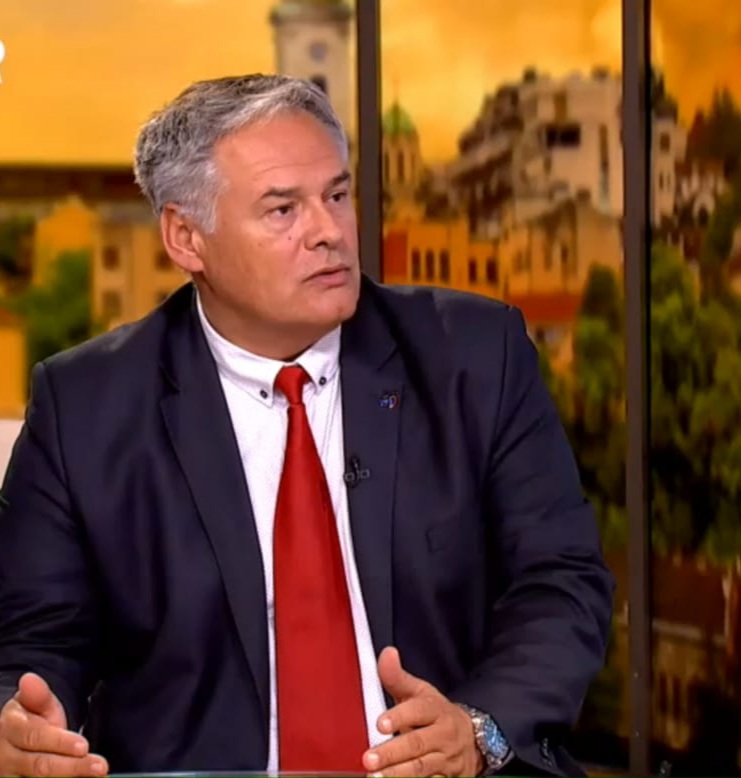The transport sector and its capacity and functionality are an extremely important resource of every country, which needs to be further nurtured, supported and developed.

The users of transport services, businesses and society will reap the greatest benefits from the well-regulated transport sector, because reduced carriers’ operating costs and combating shadow economy, with the presence of strong market competition, will benefit them and Serbian transporters who are going to become more competitive. The Srbijatransport Road Traffic Business Association is the oldest road transport association in the region and the largest association of transport companies in Serbia. It was founded in 1951 and this year, it marks its 70th anniversary. The Association’s director-general, Goran Aleksić, writes about the current situation in the Serbian transport sector.
Road transport sector
Transport is the result of a certain level of development of both the economy and society on the one hand, and on the other, it has an impact on the economic and social development of each country. A systematic approach to market development, boosting competitiveness, reducing logistics costs for businesses and the development of the public road transport sector as a very important economic activity for users of transport services and the overall quality of life in the country, coupled with the integration with other economic systems and markets, are basic prerequisites for Serbia’s development and attracting and facilitating investments.
There are a total of 7,514 companies that are active in the public transport of goods in road transport in the Republic of Serbia. They employ over 32,600 workers, and in 2020, their annual income exceeded 2,320 million euros.
Long waiting time at the borders represents a huge problem in the business of international freight transport companies, which leads to a loss of 40% of both the vehicle and the driver’s working time. Therefore, the liberalization of freight transport with EU countries is needed. Shadow economy and unfair competition are the biggest problems in the domestic freight transport sector.

Business environment in road transport
The fact remains that in the current, very difficult conditions for doing business, there is a very high number of illegal and unlicensed carriers that illegally perform public passenger transport, operate in the shadow economy and mainly provide intercity and international transport for passengers. All of this is causing considerable financial damage to legal carriers and the Republic of Serbia’s budget.
Unfair competition is favoured and stimulated because legal carriers have far higher costs, fees and obligations and they must meet all legal norms and obligations, of which there are many. On the other hand, natural persons and illegal carriers, who work without any permits or licenses, do not pay VAT and payroll tax and contributions, do not have to have transport orders, regular and scheduled departures, no approved timetables and are not subjected to regular inspections.
Given the current epidemiological situation and the concurrent measures, this kind of illegal and uncontrolled way of transporting passengers poses a great danger to society in terms of health.
Lack of professional drivers
The shortage of professional drivers in Serbia has become much more pronounced over the years and has reached a level that is extremely alarming for the functioning of the entire transport economy, service users and society as a whole. It is realistic to expect that finding an appropriate workforce will be an increasingly difficult problem to solve in the coming period unless state governments change something significantly. The IRU has called on governments to lower the age limit for professional drivers to 18.
Transport infrastructure
Srbijatransport will try to explain its proposals at the meetings with the relevant government ministries and present the facts, arguments and analyses that have been done. The faster, better, more reliable and more efficient connection between Serbia and the world, but also a connection between different parts of our country, is high on the list of government’s priorities. Traffic connections are being built and officially put in operation in today’s Serbia. Ambitious economic development and GDP growth must functionally support transport and transport infrastructure as the bloodstream of every society in the long run.
Conclusion
In recent years, the demands of users of transport services, businesses and citizens in Serbia have become stronger and the growth of economic activities has resulted in the higher demand for transport services. Concrete measures must be implemented to reduce the operating costs of carriers, as well as to ensure the supply of new young professional drivers. Plus, the business environment needs to be regulated in such a way to provide better efficiency and utilization of transport capacity. Furthermore, procedures at the border crossings need to be better regulated to reduce the waiting time of vehicles, their drivers and the goods that the vehicle carries. Having all this in mind, considering the interests of state bodies, the importance of road transport in our society and the need to develop transport activities, we need to provide required resources, combat the shadow economy and boost competitiveness. It should be in the general interest to work on constantly improving the quality of public-private dialogue.